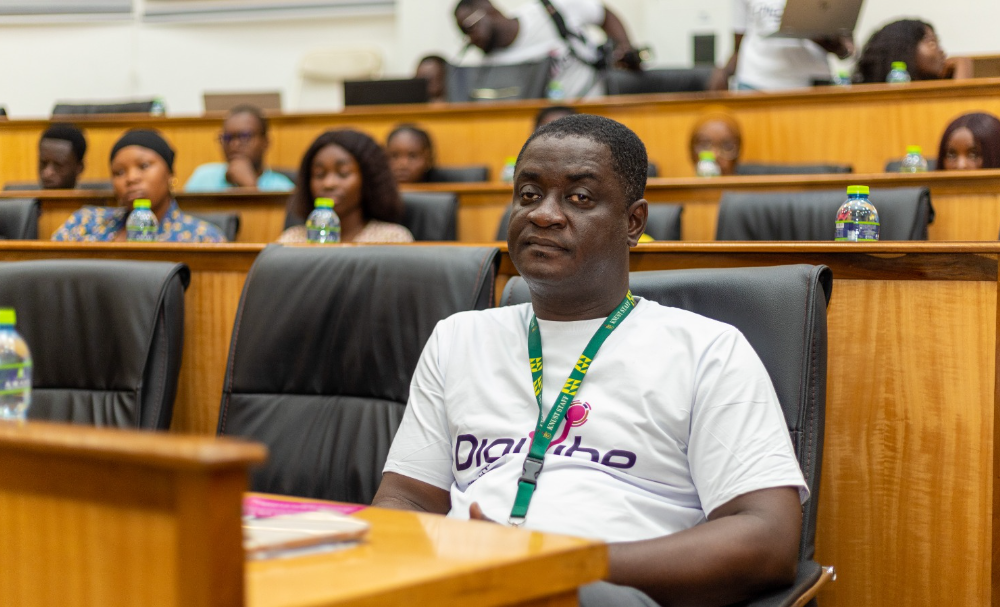A new digital skills programme, DigiVibe, has officially launched at the Kwame Nkrumah University of Science and Technology (KNUST), Kumasi.
The initiative aims to equip young female graduates with the tools, confidence, and support needed to thrive in Ghana’s digital economy.
The event brought together leaders from the AFOS Foundation, Women’s Haven Africa, WERise Network, and the KNUST E-Learning Centre. Also in attendance were representatives from the National Service Authority, universities, and innovation hubs.

Professor Eric Appau Asante, Director of the KNUST E-Learning Centre, stated that the Centre is ready to support the DigiVibe programme through its infrastructure and expertise in virtual learning.
“We are providing the space and the tools for young women to learn skills they can apply in real business settings,” he said.
He added that women are increasingly embracing technology:
“There was a time when many women saw tech as something only for men. But from what I’ve seen, women have the patience and interest to go far in the digital space. We need to support that.”
Adwoa Fosua Owusu Ofori, CEO of Women’s Haven Africa, explained that the programme is focused on closing the gender gap in tech:
“Even though women make up half of Ghana’s population, many are still not getting the digital training they need. DigiVibe is here to change that.”
She encouraged young women to believe in their potential:
“Tech is not only for boys. Whether it’s AI, data science, or fintech, you can do it too.”
The DigiVibe programme is designed to address three key gaps: the Digital Gap (D-Gap), the Exposure Gap (E-Gap), and the Gender Gap (G-Gap). It offers upskilling, mentoring, consultancy services, and job placement opportunities.

Hanna Schlingman, Project Manager at the AFOS Foundation, emphasized that the programme is not solely about technical training:
“Yes, tech skills are important. But it’s also about building the right mindset being innovative, resilient, and ready to face challenges.”
She added:
“We want to grow a strong alumni network, support young women into jobs, and build a space where they can learn and grow into leaders.”
Eunice Dewi Adjei from the WERise Network described DigiVibe as more than just a programme:
“It’s a movement. It’s a push to help women break into tech spaces where they’ve been missing. We are bringing training and job placement together.”
Over the next two years, DigiVibe aims to train 1,000 women in ICT and soft skills, place 400 into tech jobs, and engage at least 45 companies in mentorship and support.
DigiVibe is funded by the German Ministry of International Cooperation and Development through sequa and the German Special Initiative for Decent Work.
The registration portal is now open to students, graduates, mentors, and businesses.


















